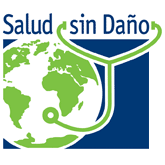Health professionals organizations from South Asia, South-East Asia, South Africa, Latin America, and the Caribbean celebrated the publication of the World Health Organization’s (WHO) revised guidelines on Air Quality and called their respective governments to work collaboratively to solve the air pollution crisis.
They urge leaders to take a regional approach and work nationally to align their air quality standards with the new WHO guidelines, and regionally with their neighboring countries to tackle air pollution.
The revised guidelines are more stringent and health-based, and provide an assessment of the health effects of air pollution, and thresholds for harmful pollution levels. According to the World Health Organization, the new guidelines provide clear evidence of the damage air pollution inflicts on human health and recommend new air quality levels to protect the health of populations, by reducing levels of key air pollutants, some of which also contribute to climate change.
Welcoming the new guidelines Rico Euripidou, Environmental Health Campaigner of groundWork, South Africa, said, “the revision of the WHO 2005 Air Quality Guidelines is justified by the unequivocal evidence of the massive contribution that air pollution has on the global burden of disease. Improving air quality will deliver multiple health co-benefits by improving health, saving health costs, and addressing the drivers of climate change.”
South Asia is home to the most polluted countries on Earth. Bangladesh, India, Nepal, and Pakistan consistently rank among the top five most polluted countries in the world, while 42 out of the 50 cities with the poorest air quality are in South Asia. Air pollution exposure is the second most important risk factor for ill-health in the region.
“As doctors, we have seen the ill-effects of air pollution on our patients. It is a public health emergency, affecting the lives of people all over the world, with the worst impacts in South Asia. Fossil fuels are the root cause of both air pollution and the climate crisis. Governments across South Asian countries need to urgently align their national air quality standards with the latest WHO guidelines and take a regional approach, keeping health at the heart of actions to tackle and resolve the air pollution crisis”, said Arvind Kumar, founder trustee, Lung Care Foundation, India.
In the Americas, air pollution is the largest environmental risk for public health. According to the WHO, more than 150 million people in Latin America and the Caribbean live in cities with levels of air pollution exceeding the WHO air quality guidelines of 2005.
For Andrea Hurtado Epstein, Climate Program Manager for Latin America, Health Care Without Harm, “while Latin America as a region is not the most polluted in the world, some of its capital cities are among the top 15 with the poorest air quality. And yet, air quality standards in most Latin American countries are significantly lower than what the WHO has recommended for the past sixteen years. Today’s announcement of the updated WHO standards is a stark reminder of the urgent need for our region to harmonize its air quality standards in a way that puts health front and center, especially for our urban populations.”
More information
